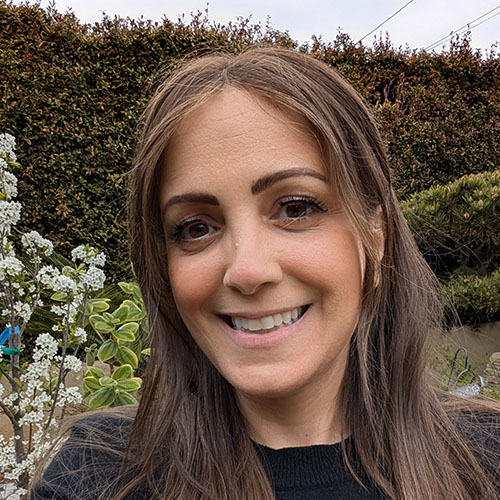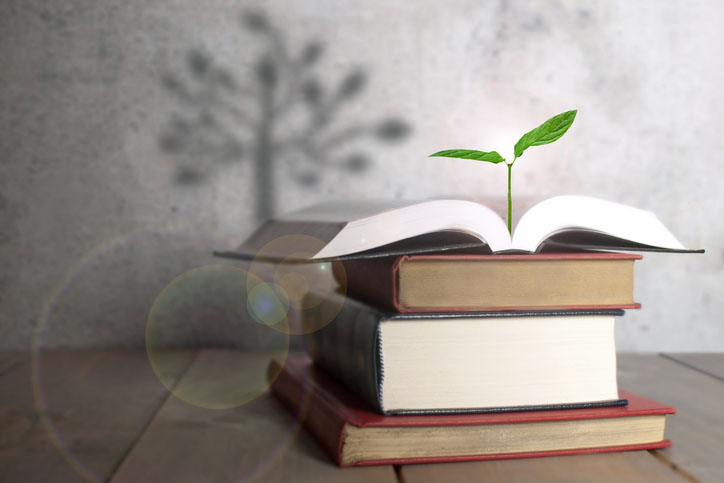
Last Thursday, I indulged in a rare day off. I went shopping, ate lunch at the park, and enjoyed a steak dinner. It was glorious. But when I arrived home, I read the horrific news that three Jewish men, all of them fathers, were brutally killed in the Israeli town of Elad. They were stabbed to death by two young Palestinian terrorists armed with knives and axes.
Together, these fathers left behind 16 children. The names of those fathers were Boaz Gol (father of five), Oren Ben Yiftach (father of five) and Yonatan Habakkuk (father of six).
As a Jew who lives 7,500 miles away in glitzy Los Angeles, I instantly felt guilty about whatever I enjoyed, complained about or took for granted that day.
When I hear such news, I’m sick to my stomach. But there’s something else: As a Jew who lives 7,500 miles away in glitzy Los Angeles, I instantly felt guilty about whatever I enjoyed, complained about or took for granted that day.
That night, upon hearing that 16 children had been rendered fatherless, I felt bad about the steak dinner; I felt terrible that I had complained about how it’s getting harder to live in LA. And I felt remorseful that I had taken my parents for granted in a multitude of ways.
I’ve always struggled with allowing myself to enjoy life after hearing about terrorist attacks anywhere, but particularly in Israel. There’s something about learning that Israelis were gunned down at a bar in Tel Aviv while you’re at Trader Joe’s, complaining that they’ve run out of baguettes again, that makes you feel small, petty and even guilty. The night after the ax attack in Elad, I sat down for Shabbat dinner, but each morsel of food seemed hard to swallow. All I could think about was how the previous Friday night was the last time that 16 children saw their father at the Shabbat table and felt his loving hands over their heads as they received the priestly blessing to safeguard them.
It’s not easy to move on with your day after hearing that innocent people in Israel were butchered in cities such as Beersheba and Bnei Brak. The fact that Jews can’t rely on the media to responsibly report the truth adds salt to wounds. The night that Jews were axed to death, news outlets such as CNN and Reuters used headlines about a “suspected terror attack.” I was confused. What’s the alternative to a “suspected” axe attack? An “axe-Jews-by-mistake” attack?
Many American Jews I know have been on edge since a new wave of terror began recently, in which 18 Israelis, including two Arab police officers, were murdered. But are we meant to shut down after hearing news of tragedy concerning Jews? I decided to ask a renowned psychotherapist and a sage rabbi (who served in the IDF during the First Lebanon War) about how we should respond to news of terror against Jews.
The Psychological Lens
“We’ve been dealing with all kinds of trauma from the news for the last several years,” Lori Gottlieb, a Los Angeles-based psychotherapist and author of the bestselling book, “Maybe You Should Talk to Someone: A Therapist, Her Therapist, and Our Lives Revealed,” told me. I shared with Gottlieb that I’m starting to shut down after hearing devastating news from abroad. “It can become overloading,” she said. “Our nervous systems can’t handle that much trauma.” Gottlieb reminded me that it isn’t helpful to ask yourself if you can experience joy if someone else is experiencing pain. “In order for us to be helpful,” she said, “we need to be able to experience our full humanity, including joy, and that doesn’t take away from the pain.”
Judaism is the greatest vessel for holding space for both joy and pain. It’s actually set up to balance the two.
I understood. For me, Judaism is the greatest vessel for holding space for both joy and pain. It’s actually set up to balance the two. Think about the Jewish marital ceremony beneath the chuppah: Immediately after being consecrated in marriage, the newly married couple holds space for one of the greatest tragedies in Jewish history—the destruction of the First and Second Temples in Jerusalem—when the groom breaks a wine glass beneath his foot. One moment after feeling wholeness with the other half of his soul, he breaks a vessel.
I also asked Gottlieb how we can feel less helpless after hearing news of terrorist attacks. “One thing that can help is asking, ‘What can we do?’” she said. “We often say, ‘Well, I’m just one person,’ but there are lots of ways to get involved in change. You can’t change something by doing nothing.” And in doing nothing, said Gottlieb, we can feel even more depressed, which is why it’s so important to take action, whether individually or with others.
The Spiritual Lens
“The Jewish people are unfortunately very experienced in responding to this kind of news; we’ve had 2,000 years of experience in how to respond,” Rabbi Daniel Bouskila, Director of the Sephardic Education Center (SEC) in Los Angeles and Jerusalem told me. As it happened, I called Bouskila while he was in Israel (he was in the country when the Elad attack occurred). From the serene terrace at the SEC campus in Jerusalem’s Old City, Bouskila observed that Jews are commanded to remember (“zakhor”). But had we historically responded to catastrophe and destruction by “exclusively mourning,” we would never have survived. “Twice, we lost the Temple and twice, we responded by mourning and then, re-organizing,” he said. “So to put it metaphorically, while Tisha B’Av (the ninth of Av) is our collective day of mourning, which we’ve been through many times and many terrible things happened on Tisha B’Av, the most important follow-up day for the Jews is the tenth of Av. Where do we go from there?” Bouskila compared it to something all Americans understand: “It’s almost like thinking about September 12 (after 9/11): What do we do the next day?”
I asked Bouskila what God wants from us when we hear news of calamity against Jews. “There’s no theology anywhere in Judaism that says, ‘This marks the end.’ I believe that God wants us to continue to live, whether those who survived the destruction of the Temples or the Holocaust or terror attacks,” he said. “God wants us to mourn, to remember and then to continue.” I also believe God wants us to refine ourselves and do better.
As for Gottlieb, she connects moving forward with direct action. “What can you do in your community about antisemitism?” she asked. “Maybe you can’t do something about what happened in Israel, but maybe you can do something here. Start in your own community, so you don’t have to feel so helpless, and you can make a true difference. And talk to your children about hate.”
Recently, Bouskila spent time in Israel with relatives who had never visited the Jewish state. In a matter of days, they visited Yad Hashem, celebrated Israel’s Independence Day (with steaks at a barbeque), heard news of the Elad terror attack, and spent a beautiful Shabbat in the Old City. “I told them that they had just squeezed two-thousand years of Jewish history into three days,” Bouskila said solemnly. “As Jews, we’ve learned to carry pain with us as we persevere.”
Tabby Refael is a Los Angeles-based writer, speaker, and civic action activist. Follow her on Twitter @TabbyRefael


































 More news and opinions than at a Shabbat dinner, right in your inbox.
More news and opinions than at a Shabbat dinner, right in your inbox.